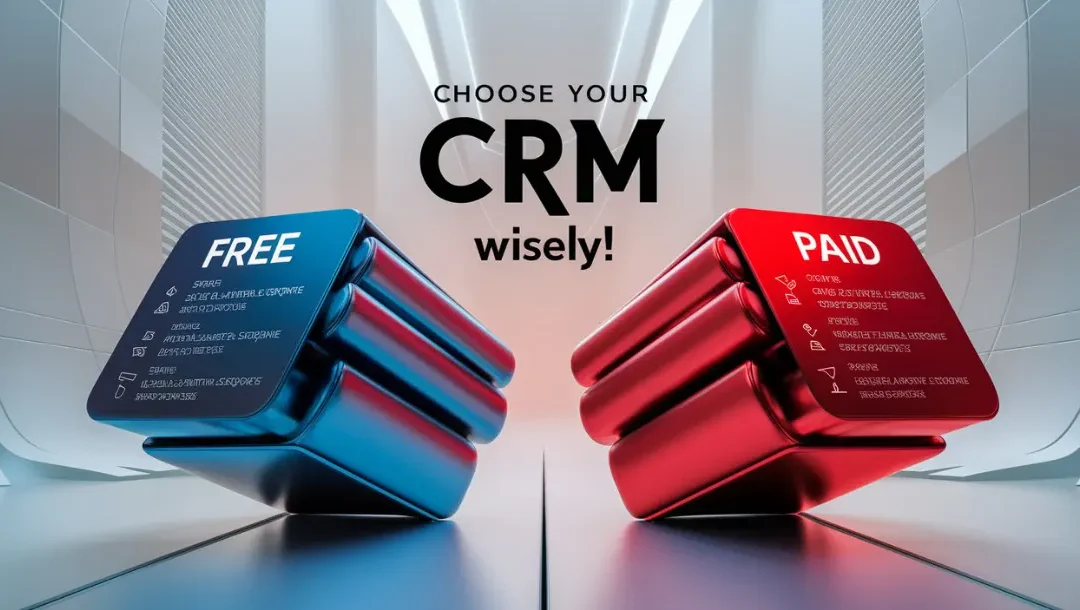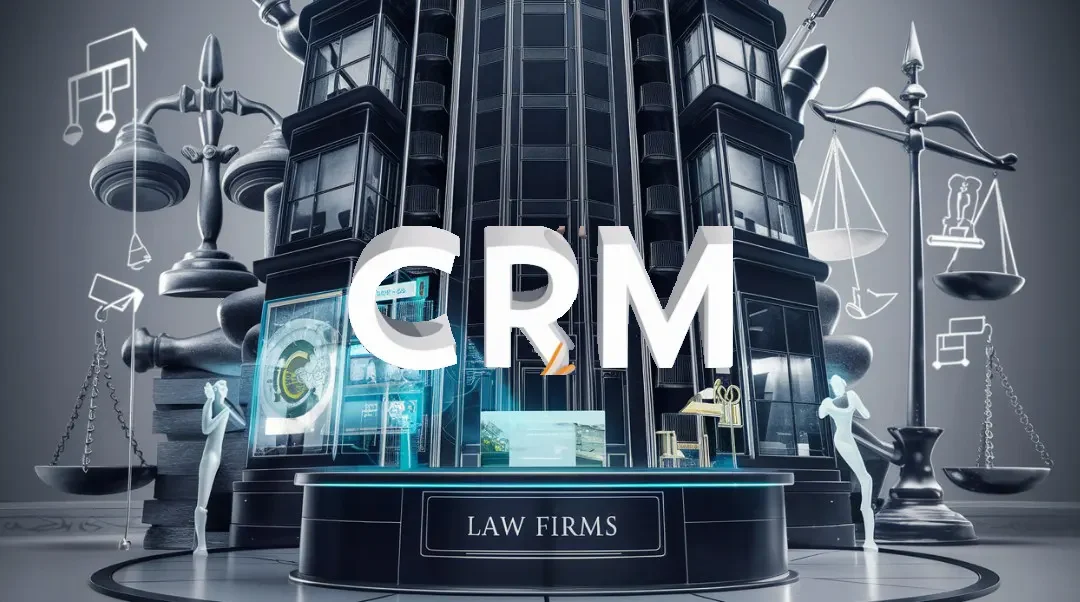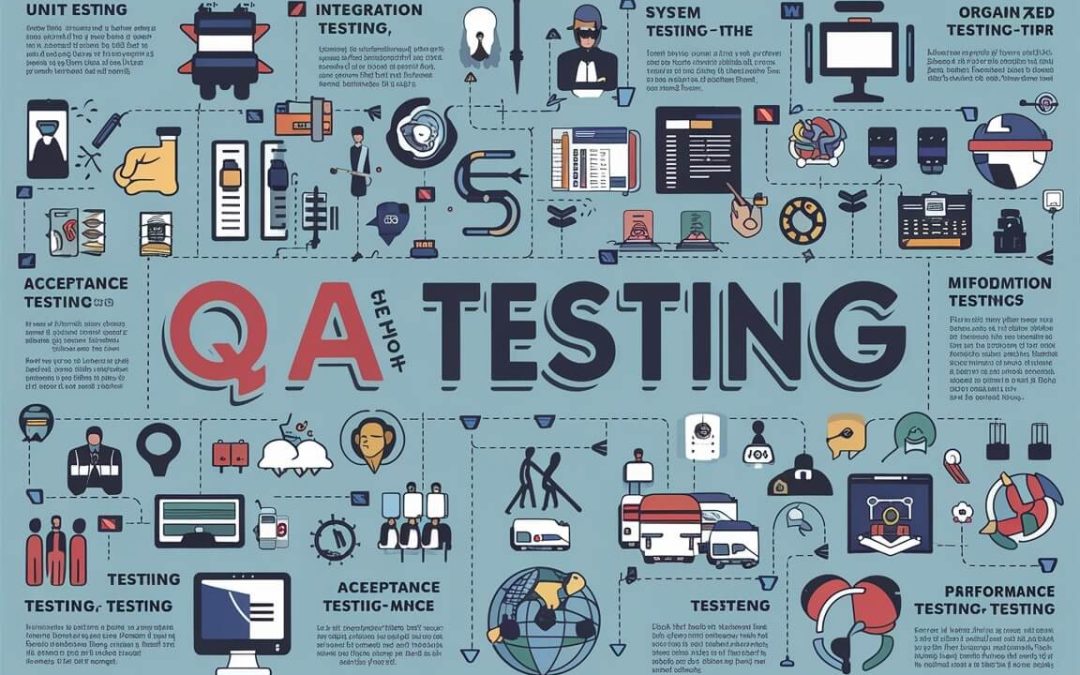If you have a business that offers software online, picking the best tool to keep track of your customers is super important. It helps you sell more and expand your business.
SaaS companies in 2024 can benefit greatly from Microsoft CRM Development Services, which offer tailored solutions to streamline customer relationship management. In 2024, there are lots of these tools to choose from because so many companies want the best one. Here is a list of the best options for businesses similar to yours.
Top 10 SaaS CRMs List
1) HubSpot CRM

A lot of companies that offer software services like using HubSpot CRM.
They do it because it has many useful features and works well with other HubSpot tools for marketing, selling, and customer service. Here’s why HubSpot CRM shines:
- It’s simple to use: With its straightforward layout, HubSpot makes it easy for any team member to keep track of customer information.
- Keep an eye on leads: Easily track your leads from different sources and oversee all sales stages with customizable options.
- Marketing tools: Use HubSpot’s strong marketing tools to nurture leads and boost sales.
- Reporting & Analytics: Create custom reports and dashboards to get valuable insights into your sales data.
- Integrations: You can connect HubSpot CRM seamlessly with a broad range of business platforms like Gmail, Outlook, and Zapier.
2) Salesforce Sales Cloud
Salesforce Sales Cloud offers an extensive set of features for small to large businesses, including those in the SaaS sector. Highlights include:
- Manage opportunities: Improve your sales workflow with sophisticated management tools for opportunities and accounts.
- Score leads: Identify top prospects using lead scoring based on engagement; automate lead handling.
- Personalized dashboards: Set up dashboards that reflect your vital stats and help manage performance efficiently.
- On-the-move access: Stay connected to customer data anywhere with Salesforce’s mobile application.
- Team up easily: Use collaborative features such as Chatter for communication within teams, shared calendars for scheduling, and task assignments.
3) Zoho CRM

Zoho CRM provides an affordable yet feature-rich solution ideal for SaaS companies looking for scalability. It stands out because:
● Budget-friendly plans: Zoho comes at competitive prices that work for various business sizes.
● Efficient lead handling: With Zoho’s user-friendly setup, managing leads, contacts, and all interactions becomes hassle-free.
● Forecasting sales: Get accurate predictions about revenue through Zoho’s forecasting functionalities.
● Tailor-made fit: Adjust the CRM system to suit your business flow by customizing fields, designs, and components.
4) Pipedrive CRM
Pipedrive CRM makes sales easy and looks great doing it. It’s all about making things simple for you. Here’s what you get:
- A visual of your sales journey: See your sales process at a glance with Pipedrive’s main feature, the visual pipeline.
- Keeping track of leads: Grab leads from different places like web forms, emails, and social media.
- Email on board: Work with your usual email services like Gmail and Outlook right inside Pipedrive, keeping an eye on emails with prospects.
- Make it yours: Change the stages of your sales pipeline so it fits how you sell.
- Use it anywhere: Stay updated with Pipedrive’s mobile app.
5) Freshsales CRM

Freshsales CRM is here for SaaS companies looking for a powerful tool. What sets Freshsales apart:
- Lead Scoring & nurturing those leads: Decide which leads to focus on with scores based on how they interact with you.
- Workflow automation: Set up workflows that do the repetitive tasks for you.
- Territory management: Organize your leads by areas or teams using rules you set.
- Email tracking and engagement analytics: See when people open emails and click on links to better plan your sales pitch.
- Works well with others: Freshsales fits right into the Freshworks family, linking up with their customer support and call center tools.
Microsoft CRM Development Services provides specialized expertise in customizing and optimizing CRM solutions to meet the unique needs of SaaS companies.
6) Insightly CRM
Insightly CRM fits perfectly for small and medium-sized SaaS businesses without breaking the bank. Here’s what it brings to the table:
- Project management included: Managing customer projects right alongside CRM tasks.
- Lead routing and assignment: Leads are sent straight to the best team automatically, thanks to some clever rules.
- Customizable Dashboards just for you: Track what matters most in sales with custom dashboards and reports.
- On-the-move updates: Keep in touch using Insightly’s mobile app wherever you are.
- Google-friendly: Enhance your workflow by connecting with Google Apps like Gmail and Calendar.
7) Agile CRM

Agile CRM keeps it simple yet covers all bases at a nice price. Check out its features:
- Everything in one place: Mixes CRM features, marketing automation, and help desk into one platform.
- Lead care: Find out who’s interested and keep them engaged using Agile’s tools for scoring leads and nurturing them.
- Integrate with social media: Gather customer leads and keep an eye on their activities over different social media channels.
- Make your dashboards and reports: Set up unique dashboards and reports that let you monitor important sales numbers and performance signs.
8) Keap (used to be Infusionsoft)
Keap is a complex tool for customer relations and marketing, designed just for little businesses and SaaS companies.
It’s packed with features to help you do better in sales, marketing, and taking care of customers. Here’s what Keap can do:
- Set things up to run by themselves: With Keap, you can automatically handle many tasks like grabbing new leads, looking after them, sending reminders, and managing email campaigns.
This way, you save time and stay in touch with folks interested in your services easily.
- Great for online shops: If you sell things online using platforms like Shopify or WooCommerce, Keap is a good fit.
It helps you keep all customer information in one spot, manage orders easily, and check out how your sales are doing.
- Handy mobile app: The Keap mobile app lets you keep tabs on your business no matter where you are.
You can look at customer details on the go, update information, and see your sales performance using your phone or tablet.
- Customize it: You’re able to tweak Keap’s sales process and set up workflows that match your business needs perfectly.
This ensures the system works efficiently just for you.
- Smooth payments: By linking Keap with payment processors like PayPal and Stripe, handling bills and receiving payments becomes a breeze.
This not only makes managing finances smoother but also simplifies purchasing for your customers.
- In-depth reports: Reports from Keap give insights into how well your sales methods are working, the effectiveness of your marketing strategies, and what your customers are looking for. Use this data to make informed choices.
9) Copper CRM

Copper CRM is easy to use and integrates perfectly with G Suite (Google Workspace), making it a great option if you use Google tools a lot for work.
Here’s what you should know:
- Works with G Suite: Copper CRM joins smoothly with G Suite, so you can handle client info right from your Gmail, Google Calendar, and Google Docs.
This cuts down on the need to switch between apps and boosts your work speed.
- Handling potential clients and contacts: You can gather details about potential customers and contacts from different places like web forms, emails, and social media. Keep all this info in one spot where it’s easy to find.
- Keeping an eye on emails: Track when your emails are opened or clicked to figure out the best way to connect with potential customers.
Understanding which messages work best helps you tailor your chats for better results.
- Make it yours with customizable steps and reports: Shape your sales process with flexible steps and reports.
Watch closely things like how quickly deals are closed, who is becoming a customer, and how much money you might make.
- App for on-the-go: With the Copper CRM app, access your client info from anywhere.
This keeps you connected to important people for your business even when you’re away from your desk.
- Connects with other tools too: Besides working great with G Suite, Copper CRM can also sync up with other tools you use, like Zapier and PieSync. This makes it easy to fit into your existing workflow.
With Copper CRM and its tight G Suite connection, companies selling software as a service can make their sales smoother and take care of their customers better without losing track of what they’re doing or wasting time switching between apps.
10) Apptivo CRM
Apptivo CRM is an excellent pick for smaller companies and those selling online services.
It provides many features to track your sales, advertising efforts, and customer interactions. Let’s dive into some of its capabilities:
- Handling leads and chances: Apptivo CRM lets you collect leads from various sources such as websites, emails, and social networks.
You can then track these leads using customizable sales pipelines to ensure no opportunity slips through the cracks.
- Email marketing and campaigns: You can set up email marketing efforts right inside the CRM.
Split your audience into groups, make your messages personal, and see how well your campaigns are doing to make them better.
- Dashboards and reports you can change: Find out important info about your sales and customers with dashboards and reports that you can adjust.
Choose what data you want to see and track the big things easily.
- Mobile app: Keep connected to your customers and business wherever you are with the mobile app from Apptivo CRM.
Look at customer info, handle tasks, and check out reports all from your phone or tablet.
- Works with other apps: Apptivo CRM works together with well-known business apps like Google Apps, Zapier, and QuickBooks.
This lets you smooth out your work processes and keep all your data together.
- Project management tools: Apart from CRM stuff, Apptivo also helps manage customer projects, tasks, and schedules all in one place.
11) Salesflare CRM

Salesflare CRM uses new technology to make selling easier by automating things.
It uses AI business solutions to help cut down on typing stuff in by hand while giving useful tips for making better sales. Here’s what’s inside Salesflare CRM:
- Automatic data entry: It automatically saves customer info from emails, calls, and meetings so you don’t have to type it in yourself. This keeps everything accurate without much work.
- AI-powered insights: Salesflare’s AI checks customer data and actions to come up with smart advice on which leads are most important or where there might be a chance to make a sale.
- Looking after your sales pipeline: You can see and arrange your sales stages with an easy-to-use setup.
It lets you move things around easily so you always know how close deals are to closing.
- Email tracking and standard templates: Know when someone opens an email or clicks on something in it to see how interested they are. Also, use ready-made email layouts for messages that always look good.
Salesflare CRM works with many commonly used business tools like Google Apps, Zapier, and various social media sites. This makes it easier for you to organize your work and avoid any information gaps.
This CRM uses automation and AI to make selling simpler and offers key insights aimed at helping SaaS companies secure more agreements and expand their businesses.
What are your thoughts? After exploring the top CRM options for SaaS companies this year, which one do you think suits your business best? Drop a comment below!
FAQs
1) How do I choose the right CRM for my SaaS company?
First, consider what your business needs. Think about the size of your team, how much money you can spend, the specific features you’re after (like marketing tools or project management capabilities), and whether the CRM will integrate smoothly with other applications you use. Looking into these factors will guide you to select the ideal CRM for your business.
2) Do CRMs help with marketing and customer service too?
Yes! A lot of CRMs have cool tools that can handle marketing stuff automatically and make customer service better. For example, HubSpot CRM works smoothly with HubSpot’s tools for marketing and helping customers; Freshsales CRM connects well with Freshdesk to take care of customer questions.
3) How much does a SaaS company usually pay for a CRM?
CRM prices vary greatly depending on the number of users and needs. Some reasonably priced options start at only a few dollars a month for each user. Examine several pricing schemes to see which offers the best value.
4) Is it feasible to combine a CRM with additional company software?
Indeed! The majority of modern CRMs seamlessly interface with other business tools, including project management software, accounting systems, emails, and others, guaranteeing effective operation throughout your company’s technological environment. It is crucial to verify a CRM’s ability to integrate with the technologies you currently use before choosing one.





